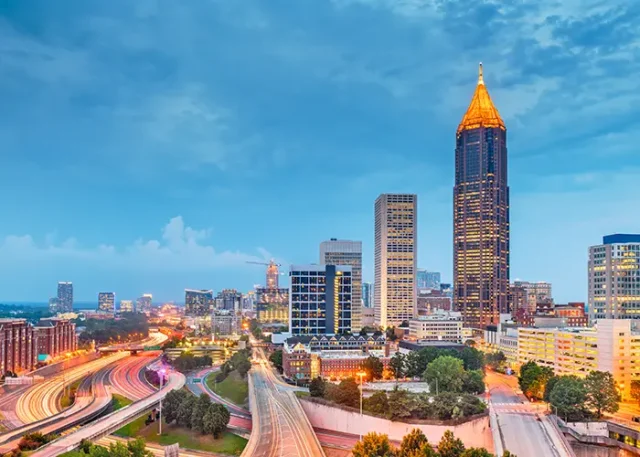
Atlanta, Georgia, is more than just a bustling Southern metropolis—it’s a city with deep historical roots and a dynamic future. From pivotal moments in American civil rights to becoming a hub for technology and film, the capital of Georgia is a blend of tradition and transformation. In this post, we’ll explore essential facts about Atlanta that highlight its exciting evolution, culture, and legacy.
A Brief Look at Atlanta’s Historical Significance
Understanding Atlanta’s present requires a glimpse into its past. One of the most compelling Atlanta historical facts is that the city was originally named Terminus due to its role as a railroad hub in the 1830s. It was later renamed Atlanta, inspired by the Western & Atlantic Railroad.
During the Civil War, most of Atlanta was destroyed in General Sherman’s infamous “March to the Sea.” Remarkably, the city rose from the ashes—literally—earning the phoenix as its symbol. This spirit of resilience defines Atlanta to this day.
Atlanta also played a critical role in the American civil rights movement, serving as the home of Dr. Martin Luther King Jr. and the Southern Christian Leadership Conference. Today, visitors can explore this legacy at the National Center for Civil and Human Rights and the Martin Luther King Jr. National Historical Park.
Innovation Drives Atlanta Forward
Atlanta is not only steeped in history; it’s also a leader in innovation. Often referred to as the “Silicon Valley of the South,” Atlanta houses a growing number of tech startups, Fortune 500 companies, and cutting-edge research institutions. Major players like Delta Air Lines, Coca-Cola, and UPS have their global headquarters here, making the city a magnet for innovation and opportunity.
In the film and TV industry, Atlanta has transformed into a production powerhouse. With generous tax incentives and a growing talent pool, the city has served as the backdrop for major franchises, including “The Walking Dead,” “Stranger Things,” and many Marvel films.
Fun Facts About Atlanta
- Atlanta has the busiest airport in the world—Hartsfield-Jackson Atlanta International Airport—handling over 100 million passengers annually.
- It’s one of the few U.S. cities to feature dense forestation amid urban development; almost 48% of the city is covered in trees.
- The city boasts the world’s largest drive-in restaurant, The Varsity, serving up fast food since 1928.
- Atlanta is home to more than 70 streets with some variation of “Peachtree” in their name—yet, ironically, the native fruit is not the peach but the Cherokee rose.
Neighborhoods as Diverse as the City’s Story
Each of Atlanta’s neighborhoods tells its own story. Midtown celebrates arts and culture with institutions like the High Museum of Art and the Fox Theatre. Inman Park is a haven for historic architecture and modern eats. Meanwhile, the BeltLine—an ambitious urban redevelopment project—has transformed old rail corridors into vibrant public spaces, uniting residents and innovators alike.
Whether you’re moving for work, education, or lifestyle, exploring Atlanta’s unique areas is essential. Consulting with local Atlanta movers can help make this transition seamless for anyone considering a new chapter in this dynamic city.
Why Atlanta’s Blend of History and Innovation Matters
Understanding the essential facts about Atlanta reveals more than interesting trivia—it’s a window into what makes this city a compelling place to live, work, and grow. From its roots as a transport center to its rise as a cultural and tech epicenter, Atlanta represents the intersection of tradition and innovation. Whether you’re drawn by the fun facts about Atlanta or deeper historical insights, the city’s narrative is ever-evolving and always inspiring.
As you explore this Southern capital, remember that every tree-lined avenue, museum, and startup speaks to a larger story: one where past and future coexist harmoniously in the heart of Georgia.





